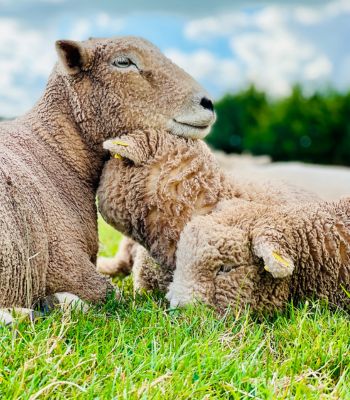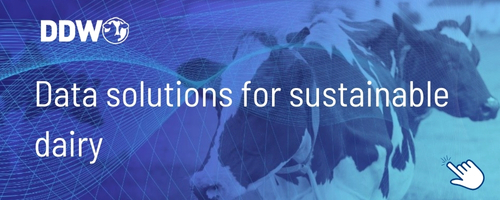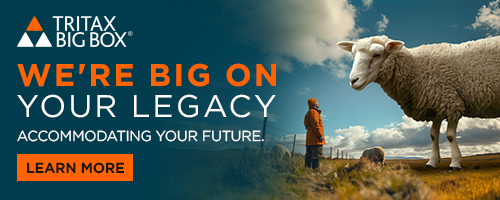On a mission to save the Babydoll sheep breed
12th June 2024
Heidi Bell is one of only eight Babydoll sheep breeders in the UK, and she’s determined to save this incredibly rare breed.

The Southdown sheep, dubbed ‘Babydoll’ due to its teddy bear appearance, is one of the oldest of the English breeds.
It originates from the South Down hills of Sussex and was near extinction by the end of WW2.
Small in stature, the breed was known for extreme hardiness and produced very tender, flavoursome meat, according to the Olde English ‘Babydoll’ Southdown Sheep Registry.
The breed rose in popularity until the early 1900s, but World War I resulted in a sharp decline in numbers.
Demand for larger cuts of meat was responsible for the breed all but disappearing by the end of WW2.
There are two distinct lines: the ‘leggier’ modern Southdown sheep, bred for larger cuts of meat, and the original miniature Olde English Babydoll Southdown.
The original version of the breed, which measures just 22 inches, was re-introduced to the UK just over 20 years ago.
There are now less than 200 registered Babydoll sheep left in the UK, and less than 400 in the whole of Europe.
READ MORE: Jacob sheep: Distinctive, hardy and good tempered

Finding Babydolls
Heidi Bell discovered the breed when she moved to a property with a few acres and began searching online for small pet sheep breeds.
“I became obsessed with finding any breeders [in the UK] as they were one of the original ancient sheep breeds in England. After a long wait, I was rewarded with bringing home four ewes,” she said.
Now she has a flock of 47 registered pedigree Babydolls including ewes, tups and wethers – and whilst it’s a small flock, it’s the largest in the UK.
She has also built a stable of fantastic rams which she is selling for the first time this year.
Farming is in Heidi’s blood, with a grandfather and great-grandfather who were Cumbrian sheep farmers on the fells near Ulverston.
However, her own background includes living in London and Sydney as a designer and photographer.

A breed like no other
Unlike many sheep breeds, Babydolls are naturally open and trusting of human contact, Heidi explained.
“We don’t have a sheepdog; I call the sheep, and they usually follow me where we need to go.
“The unique relationships and daily cuddles with each of the sheep are the balance to my work/life balance. It’s this insight that has seen several of our Insta reels go viral.”
All of Heidi’s Babydolls are born, raised, retired or rehomed as pets.
For those with a few acres, an orchard or a vineyard, the breed is an ideal ‘eco-mower’ as the sheep are too small to reach the vines or fruit on the trees.
It’s small size is also a benefit for easier handling.
READ MORE: Exmoor Horn: Dual-purpose breed offers value as farming policy shifts
Future of Babydoll sheep
Heidi wants to see the breed registered and supported as an ‘At Risk’ ancient British sheep breed.
“This is something I’m working on. I’d also like to continue building awareness of the breed and create mini flocks across the UK to a sustainable number,” she added.
In order to achieve this, she said: “It’s imperative that new Babydoll owners are committed to being members of NABSSAR, ensuring ewes are registered with the breed register and must be tupped with registered pedigree rams to ensure a pure, successful breeding programme for the future.”
The North American Babydoll Southdown Sheep Association and Registry (NABSSAR) is a non-profit corporation serving the Babydoll Southdown community.
For more information on Heidi’s Babydoll sheep visit Babydoll Sheep UK.
Read more sheep news.




